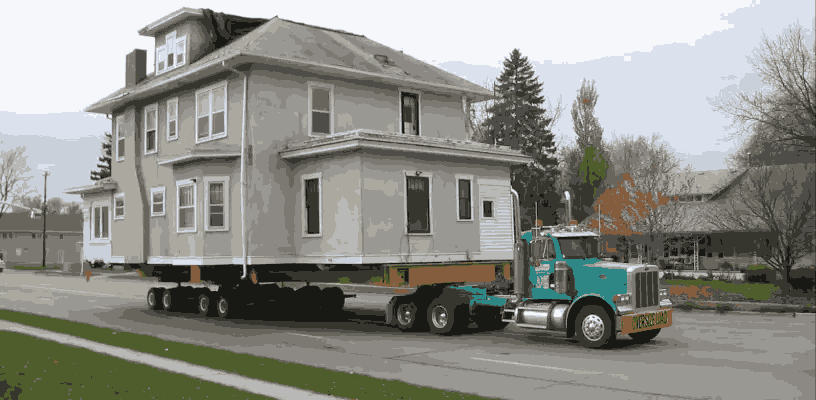How Much to Tip Movers:
Moving can be a stressful process, but professional movers help make the experience smoother by handling the heavy lifting, packing, and transportation. When their job is complete and you’re satisfied with their service, you might wonder, “How much should I tip movers?” Tipping is a thoughtful way to show appreciation for their hard work, but determining the right amount can sometimes feel tricky. This article provides a complete guide to tipping movers, covering factors to consider, standard tipping practices, and additional ways to reward excellent service.
1. Should You Tip Movers?
Yes, tipping movers is customary and appreciated, though it’s not mandatory. Moving is a physically demanding job, often involving long hours, heavy lifting, and careful handling of your belongings. A tip is a way to recognize their effort and professionalism, especially if they go above and beyond to ensure your move is successful.
That being said, tipping should be based on the quality of service provided. If the movers were punctual, courteous, efficient, and handled your items with care, tipping is a great way to show gratitude.
2. How Much Should You Tip Movers?
The amount you tip movers can vary depending on several factors, such as the size of your move, the complexity of the job, and your budget. Here are some common tipping standards to guide you:
1. By the Hour:
- $4–$5 per hour, per mover is a general guideline.
- For example, if three movers worked 8 hours to complete your move, you might tip each mover $32–$40.
2. By the Size of the Move:
- For a small move (e.g., a studio or one-bedroom apartment): Tip $20–$40 per mover.
- For a medium move (e.g., a two- or three-bedroom home): Tip $40–$60 per mover.
- For a large move (e.g., a four-bedroom house or long-distance move): Tip $50–$100 per mover, or more depending on the complexity.
3. By Percentage of the Total Cost:
- Some people prefer to tip a percentage of the total moving cost.
- 10–15% of the total bill is a common range, which can be split among the movers.
3. Factors to Consider When Tipping Movers
While the above guidelines provide a general idea, the actual amount you tip can depend on several key factors:
- Service Quality: Did the movers handle your items carefully, follow instructions, and work efficiently? Exceptional service warrants a higher tip.
- Complexity of the Move: If the job involved heavy, awkward furniture, multiple flights of stairs, or tricky logistics, consider tipping more.
- Weather Conditions: If the movers worked through extreme heat, cold, or rain, a larger tip shows extra appreciation for their effort.
- Distance of the Move: For long-distance moves, tipping expectations may increase, as the movers often spend multiple days on the job.
- Your Budget: Tipping is a gesture of appreciation, not a requirement. If your budget is tight, a smaller tip or other forms of gratitude (like providing food or drinks) is still appreciated.
4. When to Tip Movers
Timing is also important when tipping movers. Here’s the best approach:
- At the End of the Move: Wait until the job is complete to assess the quality of service. This gives you time to determine an appropriate amount based on their performance.
- In Cash or Other Payment Methods: Cash is the most common and appreciated method of tipping, but some moving companies may allow tipping via credit card or other payment apps. Confirm with the company beforehand.
5. Other Ways to Show Appreciation
While tipping is the most common way to thank movers, there are other thoughtful gestures you can consider, especially if you’re working with a tight budget:
- Provide Refreshments:
- Offer water, sports drinks, or snacks to keep the movers hydrated and energized during the job.
- If the move takes all day, consider providing lunch or ordering pizza.
- Write a Positive Review:
- A glowing review on the moving company’s website or platforms like Google or Yelp can go a long way in supporting their business.
- Express Gratitude:
- A simple “thank you” and acknowledgment of their hard work can mean a lot to movers.
6. Common Tipping Scenarios
Here are some examples of tipping scenarios to help you decide how much to tip:
- Local Move (Studio Apartment): If two movers complete the job in 3–4 hours, you might tip $15–$20 per mover.
- Medium Move (Two-Bedroom Home): For a 6–8 hour job involving three movers, tipping $40–$60 per mover is appropriate.
- Long-Distance Move: If movers transport your belongings across states and spend multiple days on the job, consider tipping $100–$200 per mover for their efforts.
7. What If You’re Unsatisfied with the Service?
If the movers provide poor service—for example, they’re late, careless with your belongings, or unprofessional—you’re not obligated to tip. However, if you feel that part of the team did a good job while others did not, you can choose to tip only the movers who performed well.
Additionally, report any issues to the moving company to address concerns and hold the team accountable.
8. Tipping Etiquette Tips
To ensure smooth interactions when tipping movers, keep these etiquette tips in mind:
- Divide Tips Fairly: If there’s a team of movers, divide the total tip equally among all members.
- Hand Tips Directly to Movers: Giving tips directly to each mover ensures they receive their share.
- Plan Ahead: Have cash ready before moving day to avoid scrambling for change or an ATM during the move.
Conclusion
Tipping movers is a thoughtful way to show your appreciation for their hard work during one of life’s most stressful events. While there are general guidelines for how much to tip, the amount ultimately depends on the quality of service, the complexity of the move, and your budget. Whether you choose to tip in cash, provide refreshments, or leave a positive review, your gesture of gratitude will go a long way in acknowledging their effort.
By following this guide, you’ll feel confident in handling tipping etiquette and ensuring your movers feel valued for their hard work. Happy moving!
For more visit, our website, Homethreads







